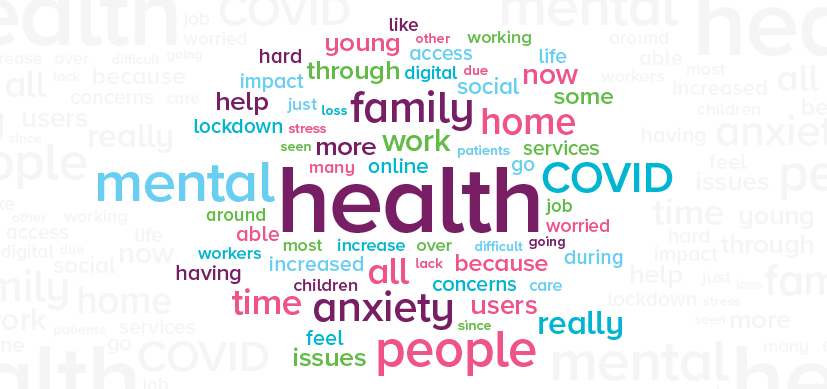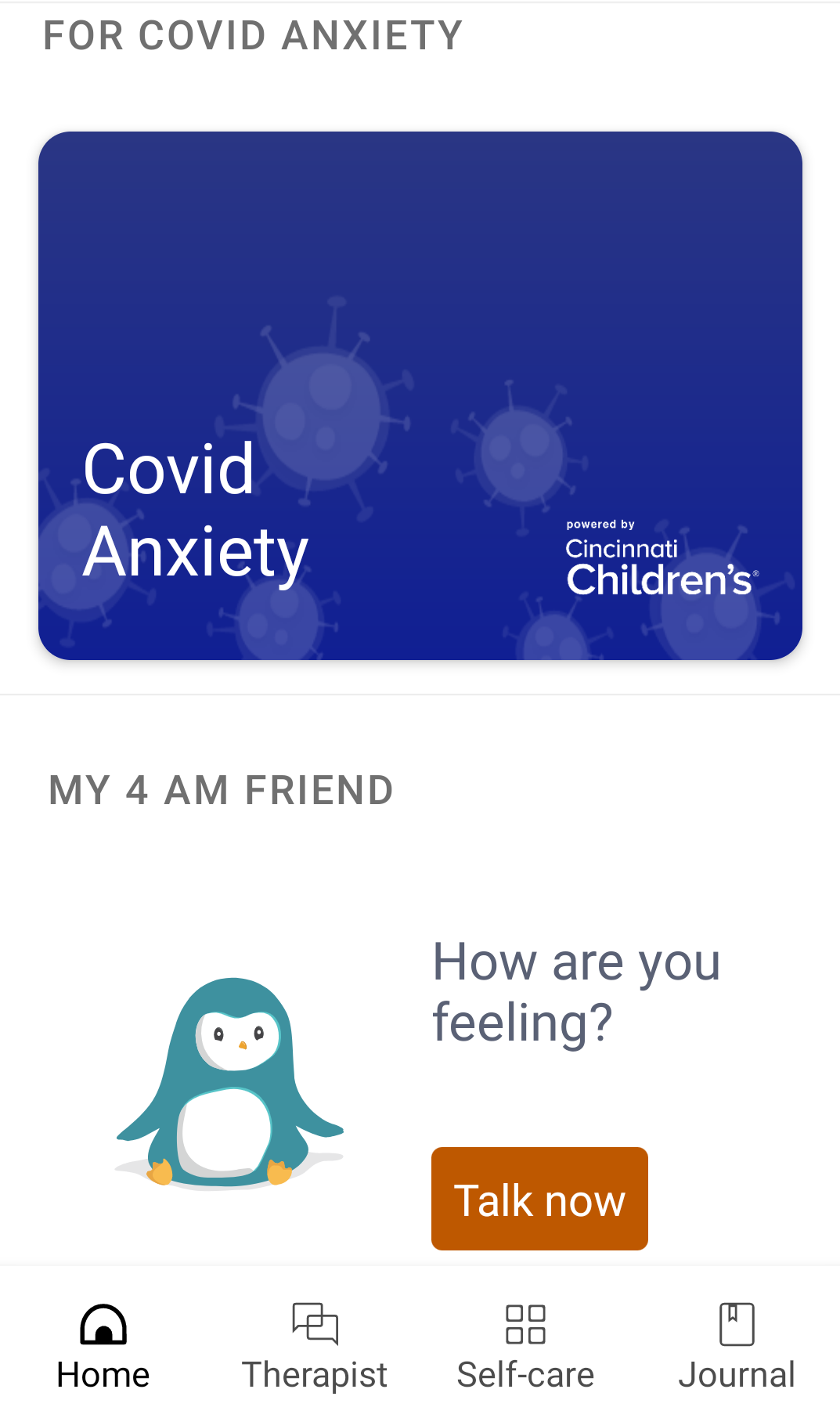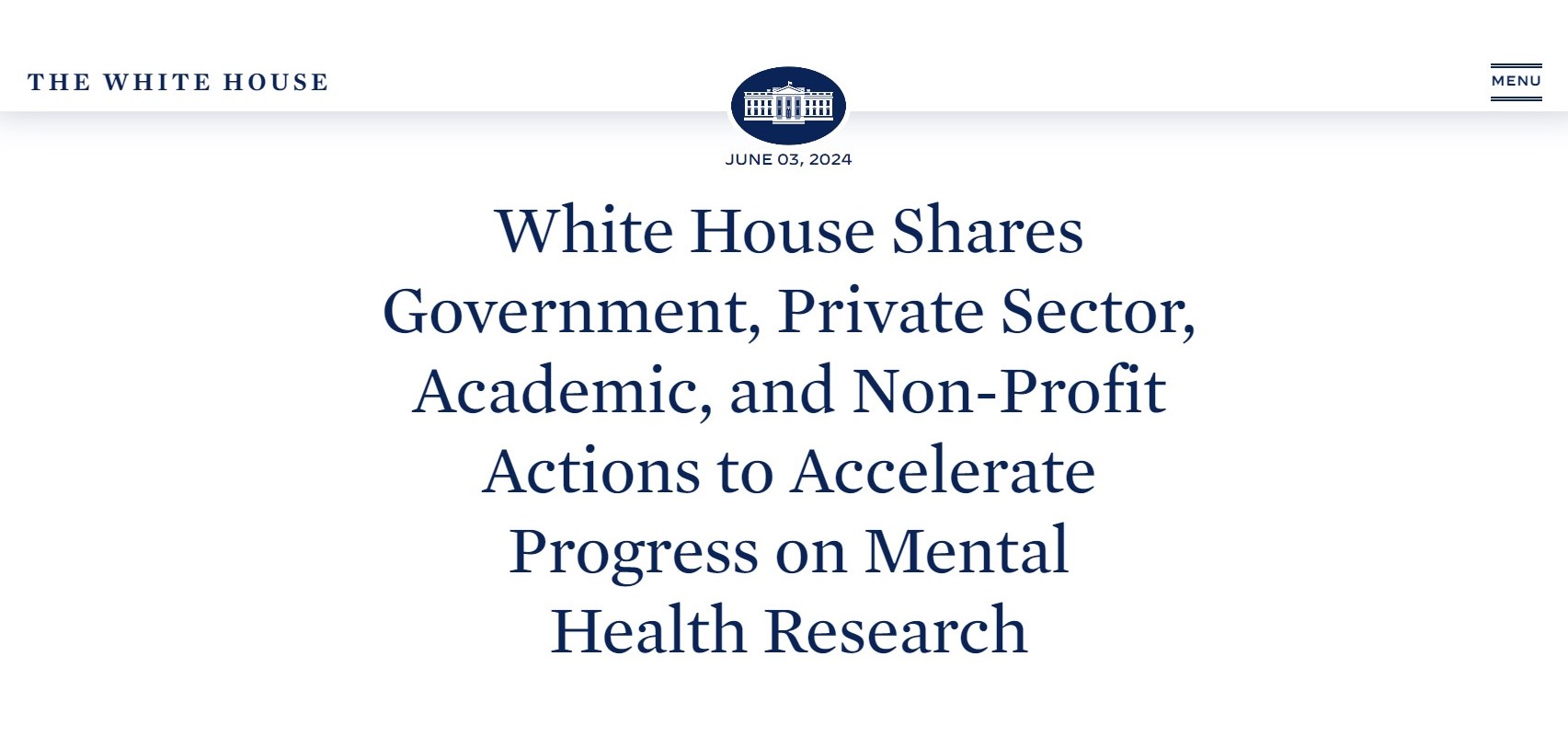Digital Providers Surge to Support Global Mental Health During COVID-19 Pandemic
Post Date: February 10, 2021 | Publish Date:


“We’ve watched the use of mental health apps increase by over 200% during lockdown.”
— Liz Ashall-Payne, ORCHA
With the COVID-19 pandemic driving spikes in stress, anxiety, depression and suicide ideation–while also making it harder to visit professionals in-person–millions of people worldwide have turned to digital platforms to seek mental health support.
Now, experts at Cambridge University in the United Kingdom have compiled data from more than 20 nations to document key issues in this rising trend. Experts from Cincinnati Children’s, who recently helped design and launch a digital COVID anxiety app, were among the co-authors in the study published Feb. 10, 2021, in Frontiers in Digital Health.
The study compiles findings from a range of digital services, such as patient-to-clinician platforms, digitally-enabled treatments, mental health and wellbeing apps, chatbots and social support networks. It also includes insights from financial services providers, and other digital sources, such as the dark web and dark net markets.
The preliminary results paint a troubling and at times bleak picture of the impact that the pandemic is having on people’s mental health, but also capture positive aspects, such as peer-to-peer support or virtual companionship for older adults.
“If we’re to be ready for the pandemic’s long-lasting impact on mental health, we need to get an accurate and broad picture of the situation we’re facing,” says Cambridge neuroscientist Becky Inkster, DPhil, principal investigator for the study. “We’ve shown that it’s possible for a large number of providers to work together across borders to rapidly gather valuable insights. This could be used to set up an integrated digital system to better understand and respond to people’s mental health needs on a global scale in real-time.”
Cincinnati Children’s co-authors who were part of the Digital Mental Health Data Insights Group were John Pestian, PhD, Division of Biomedical Informatics; Michael Sorter, MD, Director, Division of Child and Adolescent Psychiatry, and Tracy Glauser, MD, Associate Director, Cincinnati Children’s Research Foundation.
Prior to the pandemic, mental health was already a global crisis with the World Health Organization (WHO) reporting that almost 1 billion people globally had a mental health disorder, and that depression was already projected to become the leading cause of disease burden globally by 2030.
According to the WHO, mental health services have experienced substantial disruptions in 130 countries during the pandemic. This has been confirmed by clinician surveys and analyses of primary care records showing a sharp decline in clinical presentations of mental illness in April 2020 compared with expected rates. If treatment needs are delayed or undetected, there is a serious risk that pre-existing symptoms will worsen, and that new cases of mental illness will emerge.
There is mounting evidence that mental health problems have become more common since the pandemic began. Millions of people have lost loved ones. Survivors who received critical care are at increased risk of post-traumatic stress disorder. Health care workers on the front lines face anxiety, burnout, trauma-related stress and other struggles. At the same time, lockdowns separate people from family, friends, and schools, while leaving others trapped in abusive households, or turning to self-destructive behaviors. Many people have lost, or are at risk of losing, their jobs and face serious financial difficulties.
The authors of this study say that digital providers can help address delays in mental healthcare, and deliver frontline services by offering support, treatment, and real-time monitoring of mental health. Such services can also detect how people react and respond to events that have an impact on their lives. For example, one peer mental health support network reported a substantial increase in the number of suicidal posts soon after schools closed in England in March 2020.
Co-author, Thomas Insel, MD, co-founder of Humanest Care, says: “Just as the viral pandemic has accelerated vaccine development, this global crisis has brought together mental health experts from the public and private sector around the world to address what is surely a second pandemic triggered by loss, anxiety, and social isolation. This report captures the scale and scope of this emerging mental health crisis.”
ORCHA (the Organisation for the Review of Care and Health Apps), the world’s leading health app evaluation and advisor organization, was also a co-author of this paper. Founding CEO, Liz Ashall-Payne, says: “We’ve watched the use of mental health apps increase by over 200% during lockdown. This valuable international project shines a light on a crisis in the making and we must continue to collaborate to ensure citizens are supported in every way possible.”
Inkster adds: “Part of the value of these digital platforms is that they encourage people to seek support through means in which they feel comfortable. At the same time, it’s important to recognize that not everyone chooses or is able to access such services, and so it remains a continuing priority to find ways to reach everyone who is vulnerable.”
Some insights from the study include:
Changes in the type of information individuals are seeking or presenting
At the start of the first lockdown, many providers saw an increase in the number of users searching for information and resources about mental health issues, from information on anxiety to strategies for coping with domestic violence and advice on getting support through to access to food.
- ORCHA have observed a 7,500% increase in searches for health-apps related to the prevention of self-harm, a 176% increase for apps dedicated to the management of depression, an 86% increase in searches for mental health apps for the treatment of anxiety, and a 328% increase in searches for apps related to sleep.
- Participants in the It’s Ok To Talk discussion forum raised questions about anxiety, strategies to manage work, studies, sleep, dealing with domestic violence and difficult home relationships.
- Babylon reported that many patients are seeking advice on information about local council support services, seeking advice for activities to keep busy and how to remain healthy, and how to get support to access food and relating to financial concerns.
- Ieso Digital Health reported that up to a third of patients mention COVID-19 as a reason for presenting for mental health treatment and also reported a rise in patient worries about viruses, with up to 15% of in-session worries about COVID-19.
Providers saw significant increases in mental health-related issues among their users
- Mental Health America reported that 45% of people who took an anxiety screen in March scored for severe anxiety.
- Kooth reported increases in child abuse (69%), sadness (161%), health anxiety (155%), sleep difficulties (90%), concerns over body image (43%), eating difficulties (31%), loneliness (23%), and bereavement (20%) in young people (aged 10-17)
- The Mental Health Foundation reported that respondents felt increasingly lonely, and that this was most pronounced for people aged 18-24 (44%) and 25-34 (35%).
- Teen Line showed an increase of reports of child abuse by 166%
- MeeTwo reported 27 suicidal posts between 8.30am and 8pm on 22 March 2020 (48 hours after schools were closed), as compared to 406 suicidal posts in all of 2019. There was a 95% increase in level 4 (severe risk) between 20 March and 4 April 2020, as compared to 20th December 2019 and 4th January 2020.
- Mumsnet showed that 72% of surveyed users were concerned about their family’s mental health during the coronavirus outbreak and the lockdown (3-6 April).
An increase in users seeking support
Digital mental health providers saw an increase in the number of people seeking help.
- Qare reported that teleconsultations with a psychiatrist increased by 382% in March 2020 compared to February 2020. The number of teleconsultations with a psychologist increased by 195% in March 2020 compared to February 2020.
- BeyondNow reported a 53% increase in downloads of its suicide safety planning app from February to March 2020, compared to a 17% increase from January to February 2020.
- Vala Health reported a doubling in volume of mental health-related consultations with GPs during the period 10 March to 8 April 2020. By week four of the UK lockdown, general health enquiries had returned to almost pre-COVID levels, but mental health consultations continued to rise.
- National Alliance on Mental Illness reported a 41% increase in demand for HelpLine resources and information.
- Ieso Digital Health reported an 84% increase in referrals to their 1-1 online cognitive behavioral therapy (CBT) service in the weeks since the lockdown was announced in the UK, relative to the same time period in 2019.
- Wysa witnessed a 77% increase in new users during February to March 2020, as compared with the same period in 2019.
- Mentally Aware Nigeria Initiative (MANI) recorded the highest number of emergency calls in the month of April. 26% of these calls were cases of panic attack, 8% bordered around incessant low moods and the rest (66%) were suicidal.
Financial concerns leading to poor mental health
- Tully and OpenWrks Group reported that 81% of self-employed customers have declared that they do not have any work coming in due to COVID-19. 50% of their wider sample have had income reduced and 19% have lost their income.
- A Turn2us survey showed that 70% of respondents who have had employment affected are unable to afford rent or mortgages.
- A Money and Mental Health Policy Institute survey reported a range of concerns by respondents with lived experience of mental health problems about how changes, as a result of COVID-19, might affect their finances: 62% worried about having to access the benefits system, 57% worried about losing their job and 56% worried about creditors chasing them for money.
The rise of digital peer support networks
On a positive note, providers who offer peer support networks saw an increase in the number of people offering support during these difficult times.
- Papa reported that 53% of users felt less lonely and that virtual companions have performed a range of tasks with elderly users, such as obtaining medications and online grocery shopping.
- Digital Peer Support trained 750 peer support specialists between 10 March and mid-April 2020.
- Wisdo reported a 283% increase in the numbers of people replying to other people’s messages and an increase of 115% in the number of people signing up for roles to provide support for others.
This post was produced initially by Cambridge University and was edited, with permission, by Cincinnati Children’s.

Learn more about how a team of experts at Cincinnati Children’s worked with Wysa to build and share a COVID Anxiety App.
The co-creators of the Cincinnati Children’s module on the Wysa app are Pestian, Sorter, and Jeffrey Strawn, MD, an anxiety expert in the Department of Psychiatry and Behavorial Neuroscience at the University of Cincinnati.
The app offers nine self-help exercises for coping with the uncertainties and stresses of life during the pandemic. Users also can converse with an artificial intelligence (AI)-powered chat bot.
“The app aims to help people deal with their anxiety before it becomes severe,” Pestian says.
This app can be installed on a smartphone from the Google Play Store or Apple App store using the https://app.wysa.io/cchmc link.





